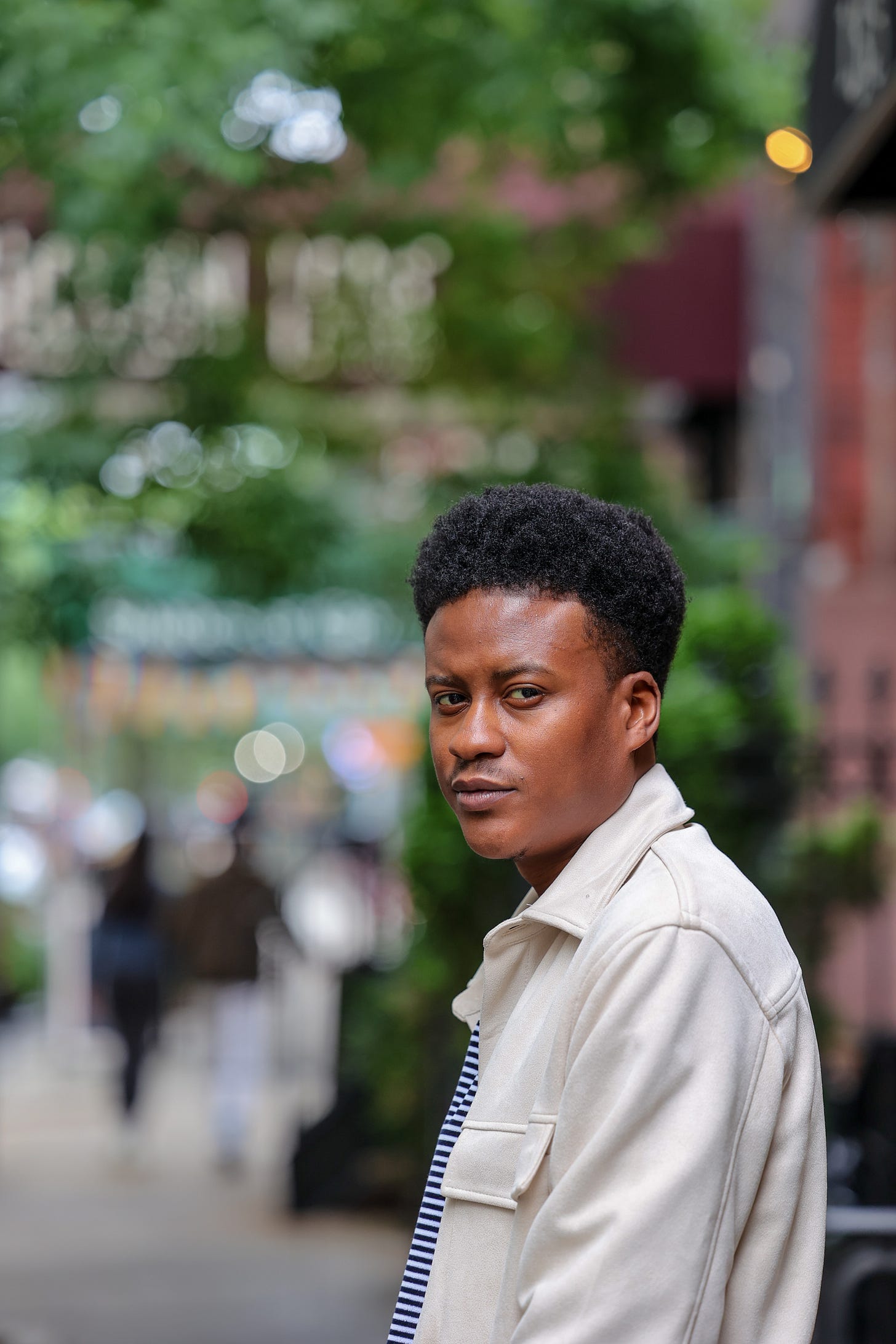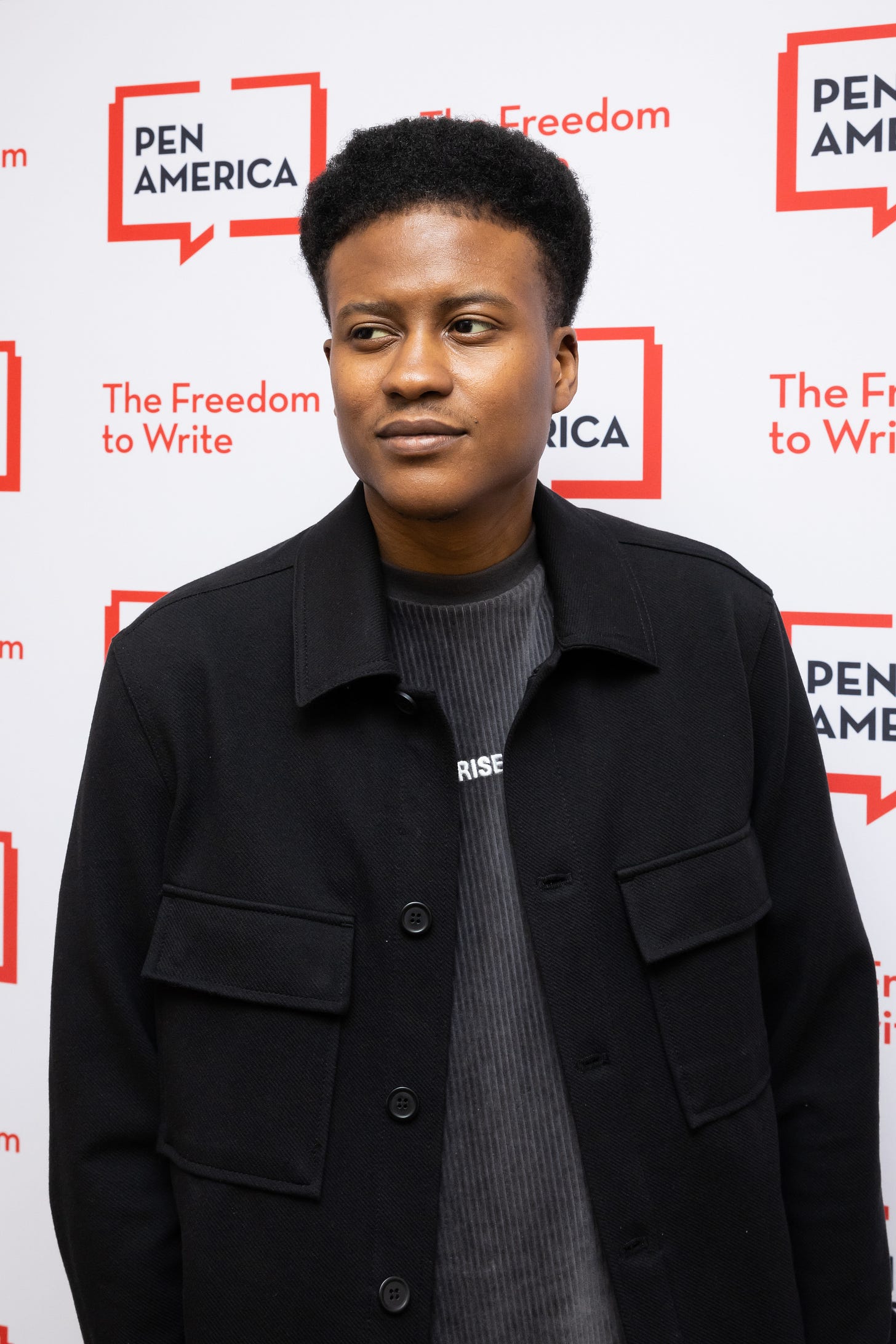Mississippi Transplant: Tyriek White
"I think of my grandparents, who grew up in the South and came to New York for the promise of something more. I get to come back and live here for all of these years with that same promise."
What does it mean to call Mississippi home? Why do people choose to leave or live in this weird, wonderful, and sometimes infuriating place? Novelist Tyriek White grew up in East New York in a housing project on the outskirts of Brooklyn. He moved to Oxford, MS in 2017 to pursue an MFA at the University of Mississippi, and still calls Mississippi home. Tyriek’s debut novel We Are a Haunting, winner of The Center for Fiction First Novel Prize, follows three generations of a working class family in East New York and their inherited ghosts. We Are A Haunting is also our February Rooted Book Club selection. We’ll be talking to Tyriek on February 27 at 7 p.m. Register for the Zoom call here.
Where are you from?
I’m from New York City—particularly the East New York/Brownsville area. I grew up in a housing project on the outskirts of Brooklyn, a pretty close knit community, surrounded by factories, landfill at one point (now it’s a mall), and the ocean.
When did you move to Mississippi and why did you move here?
I moved down here in 2017 to attend the University of Mississippi. I’ve always wanted to tell stories for a living and write a novel, so I came to Mississippi to earn my MFA. I had no idea how much influence Mississippi would have on the stories I was writing, or my journey as an artist. I wouldn’t be who I am, or where I am, without this place or my experiences here.
I often call Mississippi home and it stuns people, even though I’ve been here for a while. It is a life I’ve built on my own, a form of refuge.
What does “home” mean to you? How does Mississippi fit into that definition?
I struggle with this. Home has to be more than a place. Most of us have been pushed out of our childhood homes, pushed out of cities and our communities. The history of Black folk and indigenous folk in the country has been displacement. I find home in people sometimes, in family. I find home in memories, the nostalgia of growing up. Anywhere you build a life for yourself, or cultivate some kind of relationship to the community and people around you. I often call Mississippi home and it stuns people, even though I’ve been here for a while. It is a life I’ve built on my own, a form of refuge.
What do you miss most about the place where you’re from?
I miss my friends and family the most. Luckily, I’ve been back a lot recently so it’s not as bad. Maybe a certain level of convenience, access to certain things. But the trade off is a certain accessibility to me, which I’m not as excited about when I lived in New York. Now, I enjoy my peace entirely too much.
I think Mississippi conjures up a time (more than a place) in the American imagination.
How have you cultivated community in Mississippi? Who are the people who have made you feel rooted here?
Art is usually how I’m able to connect with a community. Meeting artists, going to events, supporting people's work. I think the folk I’ve formed the strongest connection with are from Mississippi, people who are born here, and have sought to create with this place in mind.


What’s the weirdest question or assumption you’ve encountered about Mississippi (or about you as a Mississippian) by someone who’s never been here?
The weirdest assumption is my proximity to racism, which is somehow more insidious or blatant than anywhere else. They fear I’ll encounter a certain kind of violence. And I have encountered a certain kind of structural violence that is reminiscent of other communities, but so specific to Mississippi and it shocks me sometimes. I think Mississippi conjures up a time (more than a place) in the American imagination.
I think Mississippi has given me understanding. I reclaimed a part of myself that I didn’t quite know about, a radical legacy of Black resilience.
How has living in Mississippi affected your identity and your life’s path?
I think Mississippi has given me understanding. I reclaimed a part of myself that I didn’t quite know about, a radical legacy of Black resilience. I think of my grandparents, who grew up in the South and came to New York for the promise of something more. I get to come back and live here for all of these years with that same promise.

Keep reading with a 7-day free trial
Subscribe to Rooted Magazine to keep reading this post and get 7 days of free access to the full post archives.





